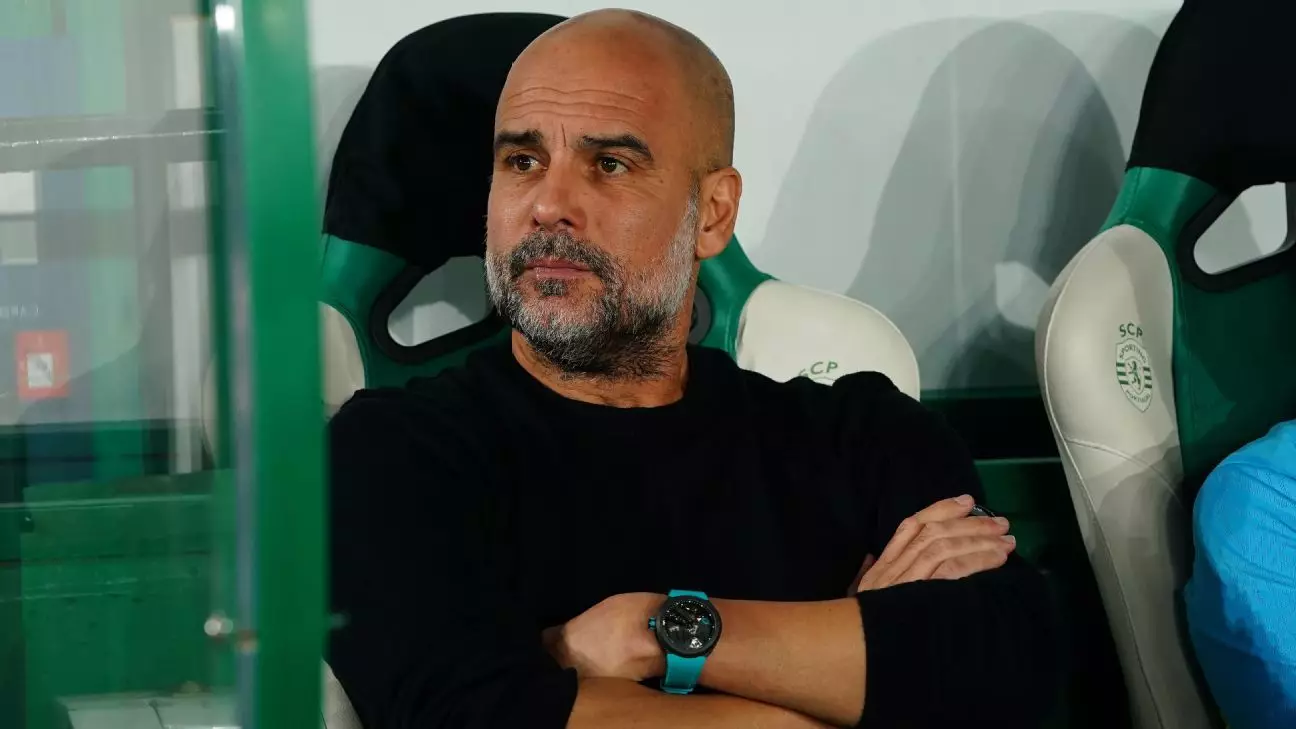In the world of football, the synchronization between club managers and national team coaches is essential for the well-being of players. Recently, Manchester City’s Pep Guardiola expressed his discontent regarding the call-up of Jack Grealish to the England national squad, despite the player being sidelined due to injury. The situation has raised questions not only about communication expectations between clubs and national teams but also about the management of player fitness during crucial matches.
Jack Grealish has been missing from the Manchester City lineup since their victory over Wolves. His absence has become a point of discussion, especially with his inclusion in England’s upcoming fixtures against Greece and the Republic of Ireland. Guardiola’s insistence on Grealish’s unavailability for City’s match against Brighton has highlighted a significant misalignment between his club’s assessment and the national team’s actions. With Guardiola stating unequivocally that Grealish is not fit to play, the unexpected call-up from England’s manager, Lee Carsley, seems to deepen the rift between club expectations and national obligations.
In response to the call-up, Carsley stressed that Grealish had been training with City in preparation for the England duty. However, Guardiola sharply countered this claim, asserting that the midfielder had only engaged in minimal gym work rather than actual team training. This discrepancy raises serious concerns over the player’s readiness and the extent to which national team demands might compromise club commitments and player health. The clarity of communication between Guardiola and Carsley comes under scrutiny, prompting a reevaluation of protocols surrounding player selection amidst injury.
As Manchester City heads into their game against Brighton, they are grappling with the pressure of a three-game losing streak—something that hasn’t happened since 2006. This precarious situation amplifies Guardiola’s frustration and highlights the urgency of getting the team back on track. The added strain of managing player fitness while navigating the challenges of national duties casts a shadow over City’s performance prospects in both domestic and international contexts.
Grealish’s desire to represent his national team, as communicated to Guardiola, adds another layer of complexity. Players often find themselves in a loyalty predicament where club and country expectations collide. Although Grealish is keen to contribute to England’s success, balancing these commitments against the backdrop of his physical limitations presents a challenging dilemma. As Guardiola noted, the national team believes in Grealish’s potential contribution, which raises the stakes for both the player and the managers involved.
Both Guardiola and Carsley must navigate this delicate situation with an understanding of the overarching goal: player health and performance. As City approaches their next game aiming to end their losing streak, both the club and national team must foster a stronger dialogue concerning player availability and fitness, ensuring that neither aspect is compromised at the players’ expense. The upcoming weeks will be pivotal in determining if the relationship between club and country can adapt to prioritize the well-being of players like Grealish amidst increasing pressures from both fronts.

Leave a Reply